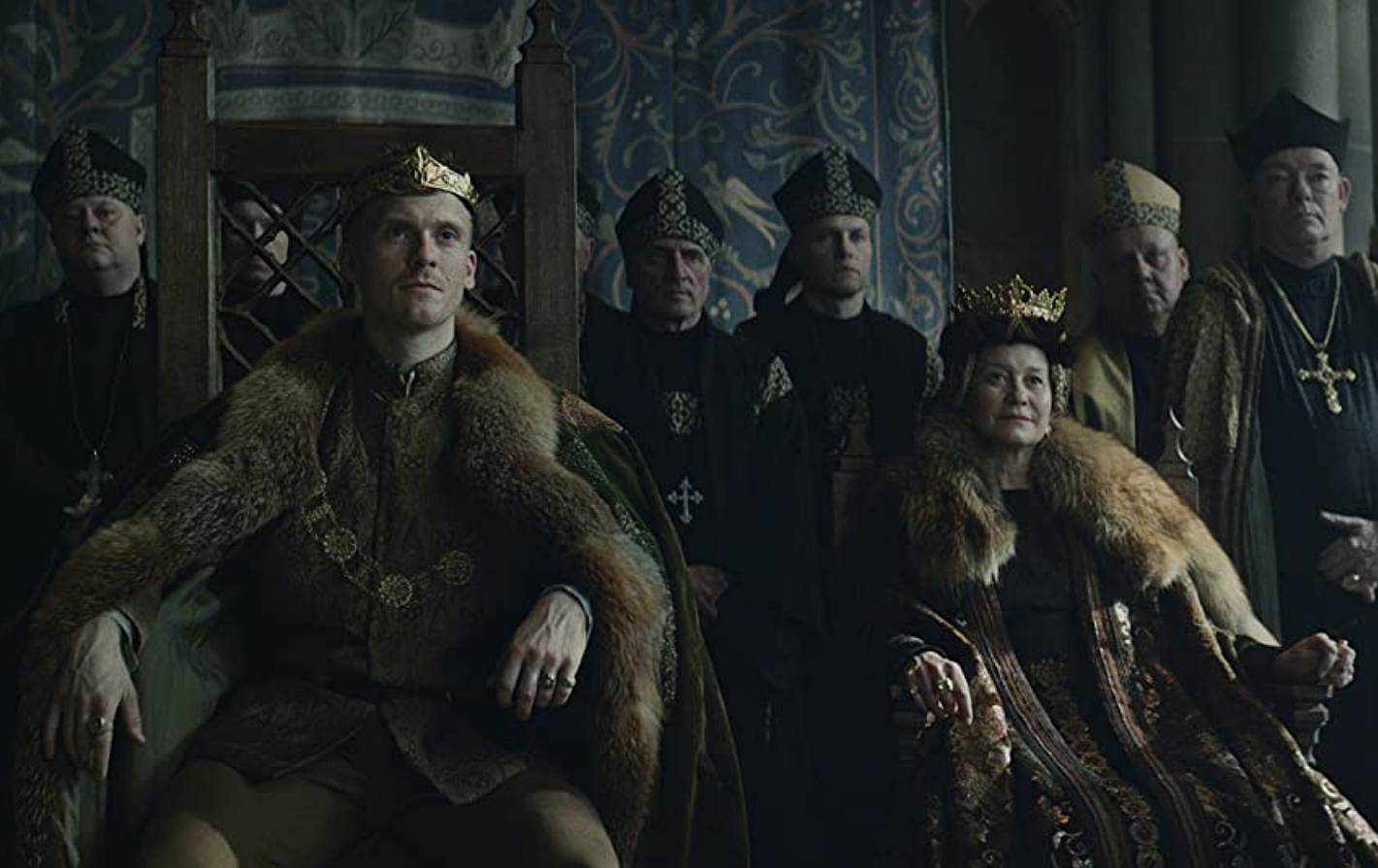
- Golden Globe Awards
Margrete – Queen of the North (Denmark): A Peacemaking Woman in Power
In Margrete – Queen of the North we find ourselves in 1361, where a very young Margaret is witnessing the dead and wounded soldiers on the battlefield of Visby in Sweden. Cut to 1402 and Margrete has become Queen Margrete of Denmark and is negotiating with Norwegians and Swedes to create peace in the Nordic countries.
“She was such a powerful woman in that special time when she was not allowed to be in power,” says Danish actress Trine Dyrholm, who plays the historic queen, who needed a son to be able to keep her right to the throne. “We don’t know how she was able to do all this, but I think she must have been a very bright and clever woman that was able to negotiate with and read people.”
Margrete – Queen of the North is the latest film by Danish filmmaker Charlotte Sieling, who is known for working on several successful Danish TV series such as Unit One, The Killing, and The Bridge. The film is about a powerful woman, who is determined to create a peaceful union in her region – and who does just that.
“She made peace in a very violent era,” says Charlotte Sieling. “She lived twelve of those years herself but after her death, there were a total of 126 years of peace in the Northern part of Europe, which was called the Kalmar Union. She created that union and that is quite an accomplishment. Before her reign, the Nordic countries were at war and killing each other constantly and the moment Sweden withdrew from the union, there was a blood bath in Stockholm in 1520 and from then on the battles continued.”
To stay in power and fulfill her political ambitions, Margrete adopted a son, when her biological son passed away at the age of 17. The film shows the dilemma the powerful monarch had when a man claiming to be her dead son appears and threatens her path to freedom and peace for the Nordic countries. It shows how a mother could make highly difficult political choices and prioritize her country’s wellbeing above anything else. That meant she also had to be ruthless.
“There was a man claiming that he was her son, Olaf, while she is trying to marry her adopted son to England,” says Trine Dyrholm about an important political alliance that the queen sought to make. “We know that there was a long trial, and we know that she burned the man with all the papers from the trial.”
History books are full of powerful men whose achievements have been significant, but less so with women’s stories.
“The more we look, we find many stories about women in powerful positions that were not written,” says Charlotte Sieling. “There are so many women’s stories that are waiting to be told and that is why we are here as filmmakers; telling those stories.”

